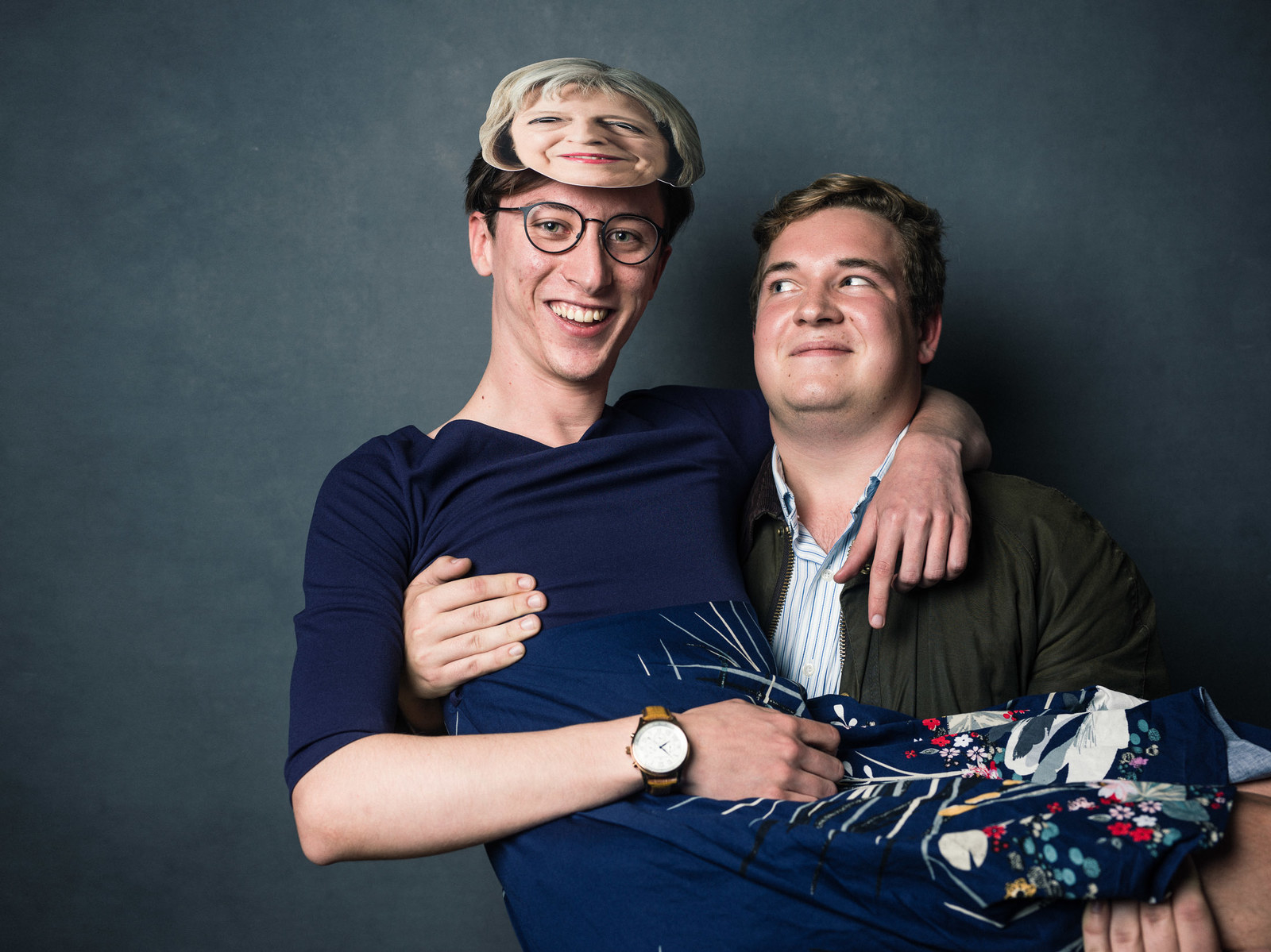At the University of Sussex freshers’ fair in September, there were stalls representing societies across the political spectrum: Labour had one, the Lib Dems had one, the Marxist society had one, and so did the Communists. But only one attracted heckling and abuse: that of the Conservative society.
Amid “the barrage of abuse”, the society still managed a few dozen signups, something the new association president hopes will translate into around 25 active members across a university of more than 15,000 students. “For me that’s a good number,” Joel Chilaka told BuzzFeed News. “For us this is good. It’s on the up.”
Chilaka is a third-year medicine student who has been president of the association since the end of the last academic year, at a university where in 2012 a visiting Tory MP claimed to have been barricaded in a room by protesters. And, earlier this year, a professor advertised a workshop on “dealing with right-wing attitudes and politics in the classroom”.
That has led to a climate where, Chilaka said, people are afraid to identify themselves as Tories. “You might get people who run up to the stall, write their name and go, because they don’t want to be seen there. Literally some people come, say ‘Can I just sign my name?’, write their details down, and then that’s it – gone.”

It's becoming clear the Tories have a youth problem. Before the Conservative conference got underway in Manchester, YouGov identified 47 as the age at which voters were more likely to have backed the party in June’s snap election. A report by the conservative Bow Group found the average age of Tory members – a dwindling group in itself – was now 72.
In the 2015 election the Tories had a big lead over Labour when it came to older voters, but the rest of the breakdowns by age were broadly comparable. Two years later and around two-thirds of voters under 30 opted for Labour, as opposed to just 1 in 5 for the Tories, something credited to Labour leader Jeremy Corbyn’s huge popularity among younger people.
A BuzzFeed News analysis of stories shared on social media showed that younger voters don’t just see Tories as having bad policies, they see them as bad people. Labour MP Laura Pidcock said in August she wouldn’t hang out with Tory women in parliament, while in September MP Bob Stewart said his son’s teacher had told his classmates not to talk to him because his dad is a Tory.
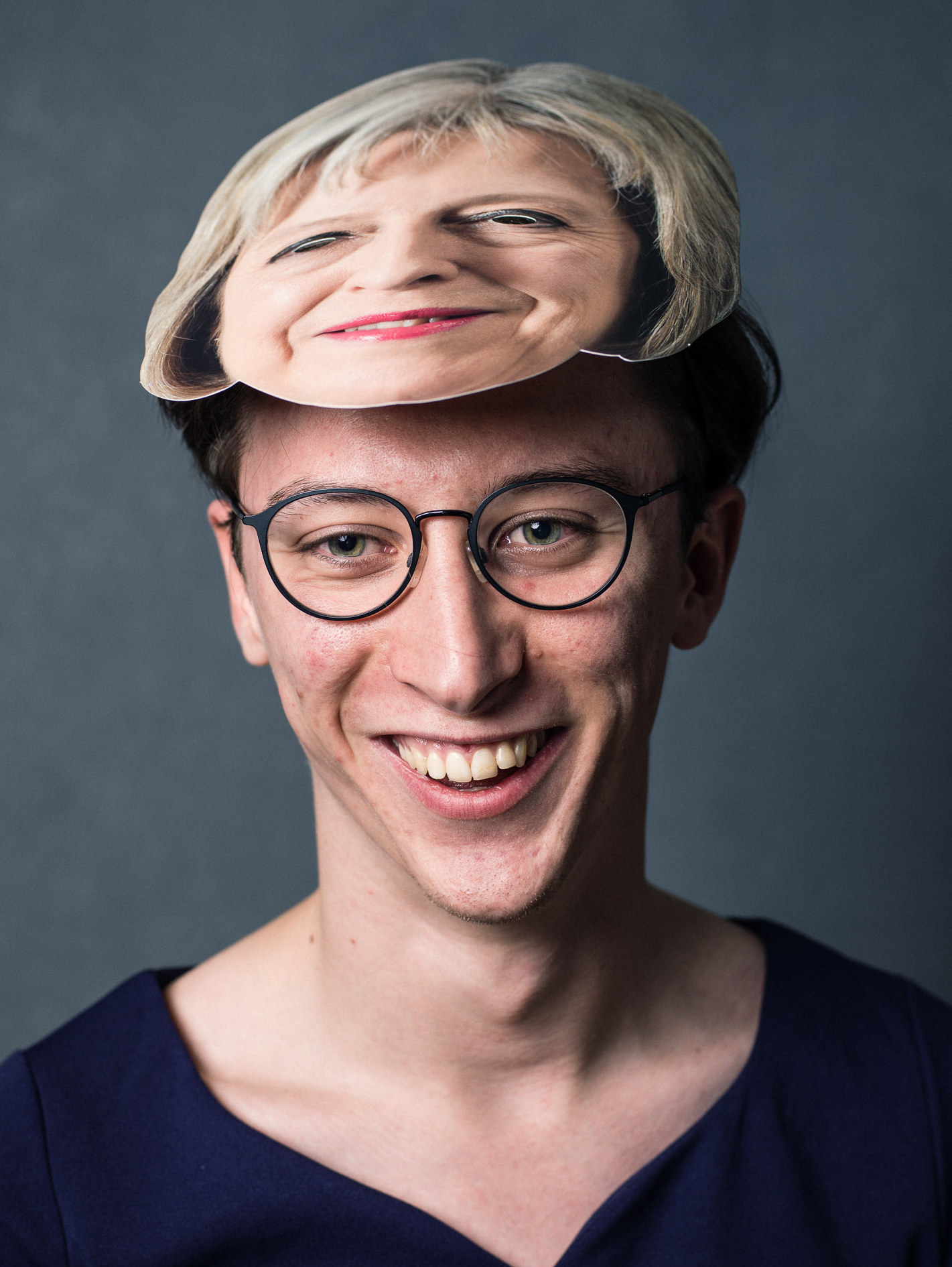
Nowhere is this decline more telling than on university campuses where some Conservative associations, admittedly small, have fallen by the wayside.
The traditionally left-wing School of Oriental and African Studies (SOAS) told BuzzFeed News it had no record of the university’s Conservative association existing for at least the last three years. The young Tories we spoke to said there had been a “vacuum” left by Conservative Future, the youth group that was shut down in 2015 after a bullying and blackmail scandal, and the suicide of a young activist. Attempts to recreate the grassroots success of Labour’s Momentum in the form of Activate have been pilloried.
On top of that, according to a document obtained by HuffPost, CCHQ is considering severing all ties with university associations, because of “risky politics”.
Chilaka admitted that the Tory student association in Sussex has been largely inactive since the 2012 protests, which he hopes to rectify this year with more community engagement, such as volunteering at homeless shelters in Brighton. “I doubt that someone would punch me in the face for serving soup at a soup kitchen,” he said.
Alexander Masir, 21, the new president of the student Tory association in Glasgow – the oldest of its kind in the UK – described a similar step backwards. He told BuzzFeed News the group had become something of a “secret society”, operating without even a website.
He believes the society currently has around 50-odd members – a decline he called a “great blow” and one he traces to protests that accompanied the group’s 2011 annual St Andrew’s dinner.
Despite believing that between 20% and 25% of students at the university voted Tory in this year’s election, Masir said the overall atmosphere was “so far to the left that it’s generally hard to find people tolerant of our existence”.
“This is not us trying to campaign, not trying to do things loudly or ostentatiously, people are basically questioning our right to assemble and meet with like-minded people. Many people do criticise us for what they see as corrupting the students, basically making them turn to immoral things.”
Masir, who moved to the UK from Hungary to study English and linguistics, said the very fact the society exists within a university setting was perceived by some people to be “extremist”. He anticipates a backlash when the society begins inviting speakers, although the first event, a pub meeting with a Tory MSP, passed without incident.
It was great to catch up with @GUTories at their freshers event, hearing so many encouraging ideas from the group.
Will Richardson, 20, has been involved with Conservative politics since he started at the University of East Anglia. He has stood in local elections and is currently the general secretary of the student association there.
He told BuzzFeed News active membership of the society is in the high 30s (“pretty healthy numbers”), but reflecting general apathy towards all political societies at a uni where the student union “has a rather bad habit of making national press for doing especially stupid things, for instance the infamous sombrero ban”.
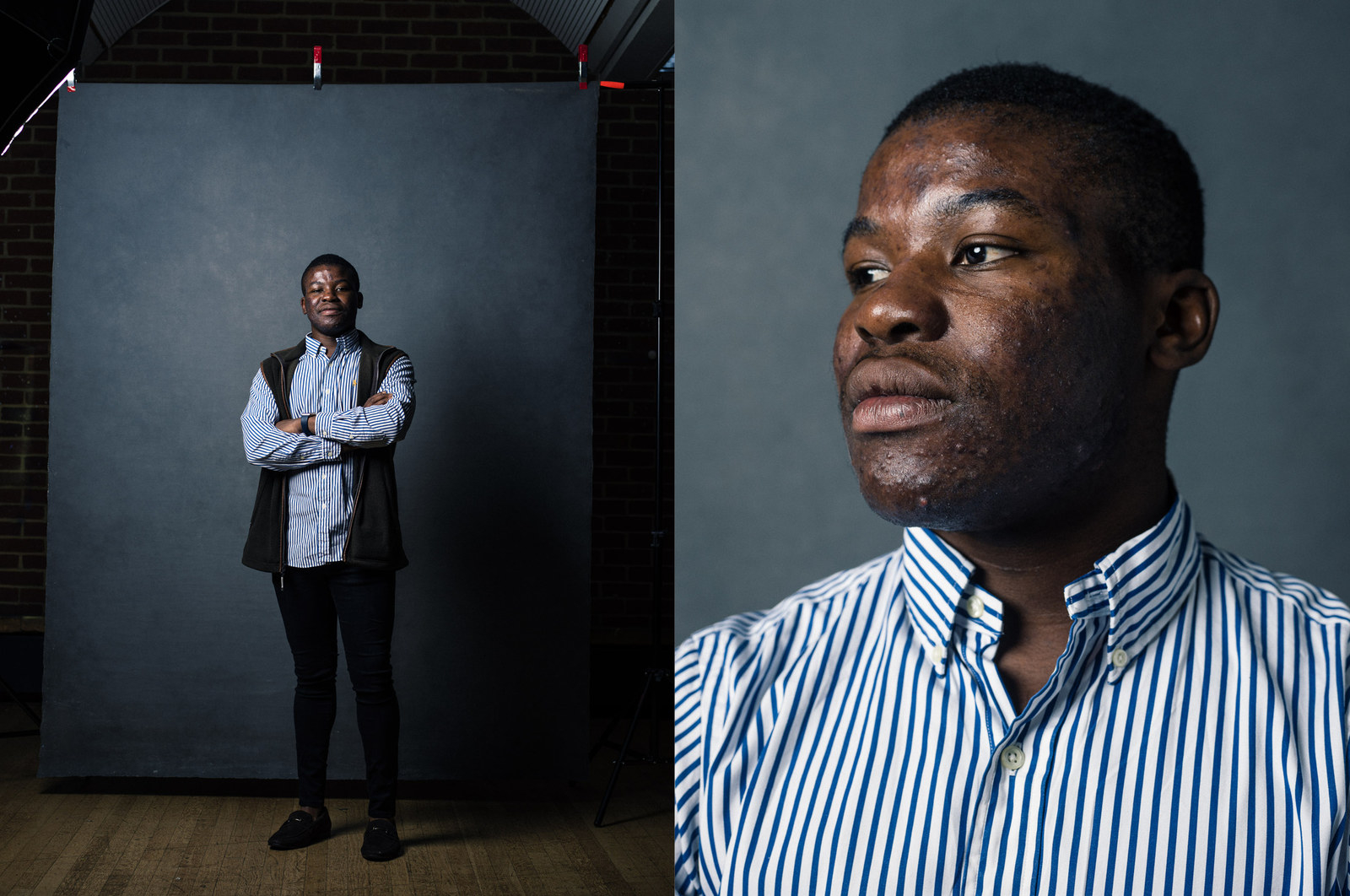
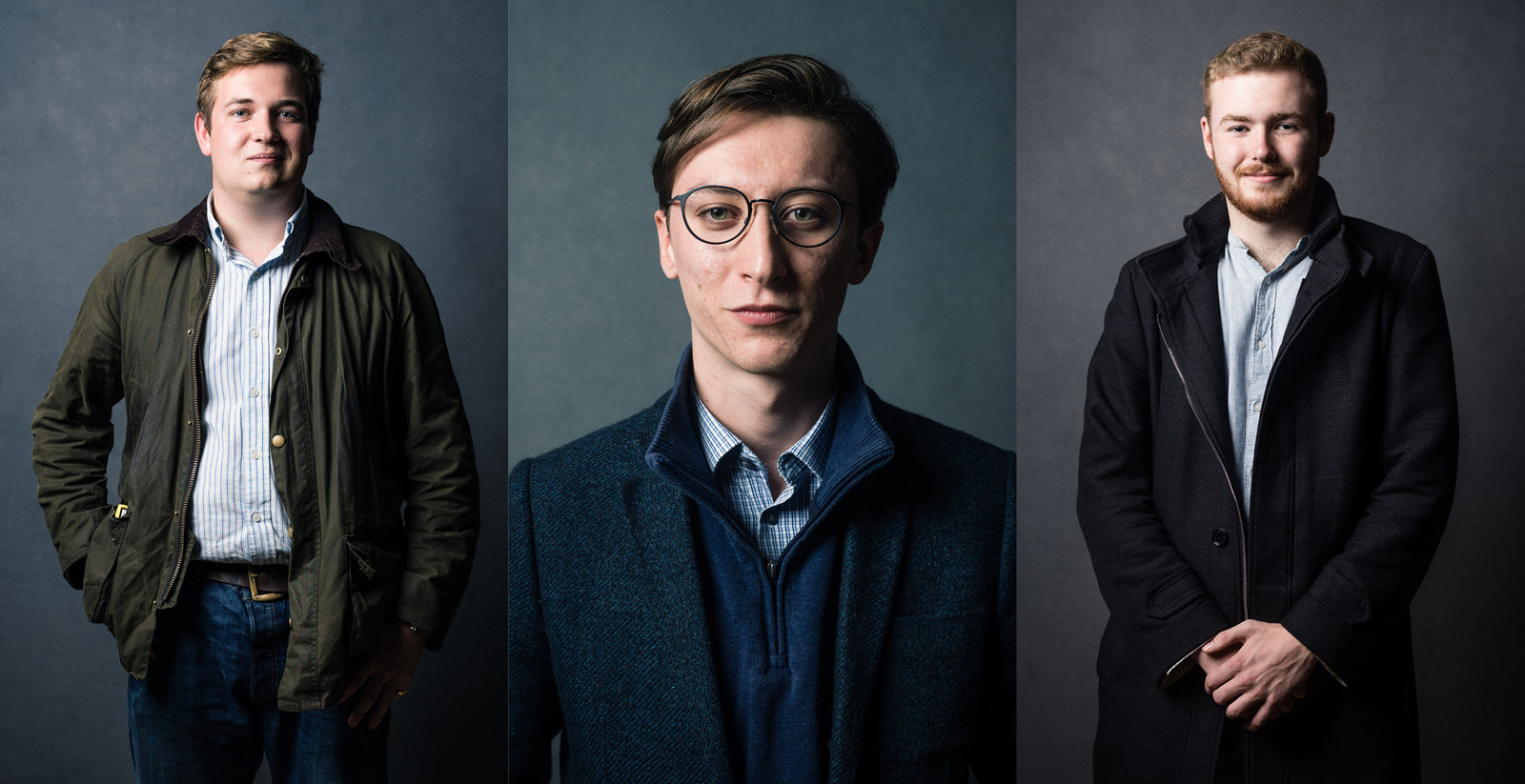
On the whole, he said, the university is home to lots of people who are “very, very hard left, and are very active”.
“If you’re meeting someone for the first time at university you’re guarded about your political views until you at least know who you are, otherwise it’s tinged with an expectation that you’re a despicable person,” Richardson, who is originally from Nottingham, said.
He said the abuse he gets is “more funny than upsetting”, the worst incident being a “drive-by egging” after a society meeting at a Norwich pub.
“On the whole it’s been OK,” Richardson said. “A few friends that do economics with me, part of a rather large group of lads who sit together in lectures, there are a couple of people who have jokingly called me a Nazi. I’m not averse to that kind of joking about, it’s the kind of thing that happens – I’ll call them a communist or whatever. But there have been points where it’s been said in a manner that suggests it’s not as joking as it ought to be. There have been a few people who have been quite awkward when they’ve found out my political views and not wanted to associate.”
For Masir, discrimination against Tories on campus is real and he thinks it's stifling debate. “If people weren’t intimidated into self-censorship, then you would see much more people in the association, you would see Conservative opinion on campus. The reason you can’t see that, why people have to be called shy Tories, the reason why they have to conceal themselves and say they are apolitical – or a Liberal Democrat – is because of the manner of intimidation and discrimination against us.”
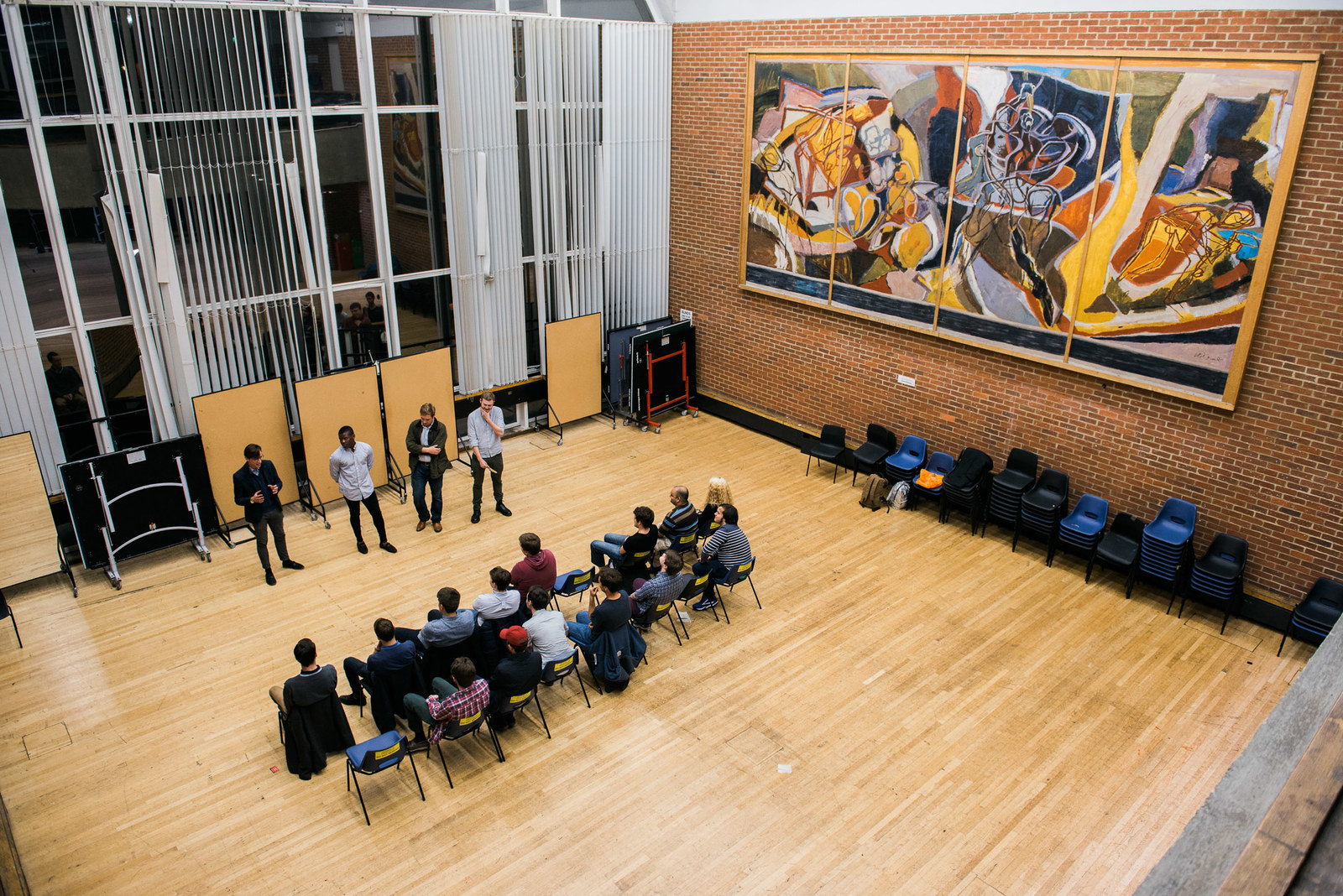
Chilaka said he has been called a racist, and a paedophile, for being associated with the Conservative party. “You get used to it because at the end of the day it’s petty, it doesn’t achieve much.”
As a medicine student, he said he is frequently challenged by lecturers about the government’s funding model for the NHS.

“It’s quite tricky. We get these lectures on the structure of the NHS, and it basically turns into the lecturer bashing Jeremy Hunt,” he said.
“It’s a bit demoralising when you’re the only one in a lecture with a counterpoint but you know there’s maybe 10 of your friends who’ve expressed the same view, but they just won’t bother to in a room because they don’t want to be labelled as ‘that Tory’, or called a murderer or something like that, just because they think a different view to the mainstream.”
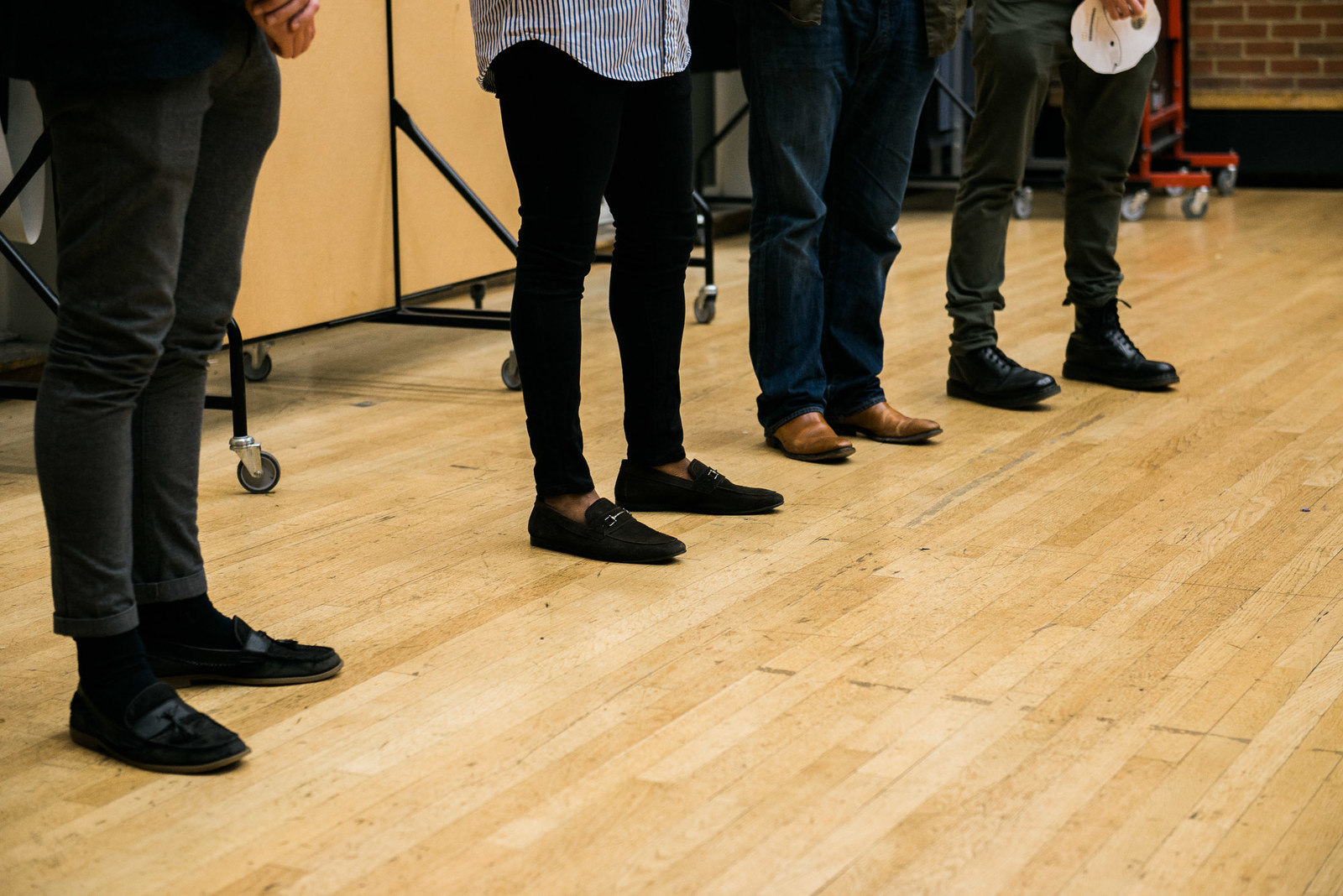
Masir said that views hardening against Conservatives felt “universal”: “Almost as if supporting the Conservative party is a form of barbarism, and that you are not enlightened enough to be admitted into civilised conversation. It’s just most visible in universities because in other life there is a more equitable distribution of Conservative and non-Conservative voters.
“Somehow this party manages to get into government. There must be people voting for this party; at university it doesn’t seem like there are that many people helping this come about, whereas in real life there must be Conservative voters somewhere.”

Chilaka is 20, from a middle-class background from Stoke-on-Trent. He said he gave each of the three main parties “a year of membership and money” to decide which one fitted him the best: “After that I had made my mind up that I was Conservative.”
He said the abuse he has got has made him “more passionate for the cause”, although he is jealous of left-wing protesters who don’t have to take the same things into consideration. “The students who are left-wing don’t go to these rallies thinking, God, I could have a counter-protester turn up and have a go at me – it could possibly turn violent. When I’m running events now, it’s in the back of my mind.”
The accusations of racism are particularly ironic for Chilaka, who is black.
“That exposes for me the flaws in the Labour side because they instantly tar everyone with the same brush,” he said. He felt “very patronised” by a much-criticised tweet sent from Corbyn’s account during the election campaign that said only Labour could unlock the potential of BAME voters.
Only Labour can be trusted to unlock the talent of Black, Asian and Minority Ethnic people.
“I just thought, How can you as a white man say, ‘I’m the only one that can unlock your potential’? I’m doing very well for myself. That’s not because of you, I’ve worked hard, and to give that message to a black voter I just thought was incredibly patronising," Chilaka said.
“You know the typical thing that’s going on in the media at the moment is blaming white males for everything, and I think that’s wrong. Because a black male from a middle-class family is kind of counter to everything that they have to say. There is inequality and there is stuff to be done about it, but just to label a group of individuals as the root of all the problems in the world is farcical. So when people see me with the same views as these supposed idiots who are white and privileged, they don’t know where to go, because they can’t accuse me of racism and they don’t know what to say about privilege.”
He said that “too often, especially on a student level, debate gets shrouded into a ‘you’re from this background, and you’re a Tory so you must think this’, and I feel being a black Tory gets rid of all of that, and then it just becomes a simple ‘How’s he going to fund this?’ or ‘Which service is going to be cut to fund this?’”
But Richardson said he had some sympathy for people for people who say "I hate Tories who just want to be able to buy ivory keys for their piano and go out and rip foxes to pieces for fun", referencing two Tory manifesto policies from the 2017 election that attracted huge attention online.
“I’m not denying that there are plenty of Conservatives who are pugnacious, kind of out for an argument. And they’re very socially conservative, economically conservative, and feel very protective to their background, and aren’t particularly charming," he said. "I've met lots of them and liked very few of them."
He said the manifesto pledge for a free vote on fox-hunting, and a watering down of a ban on ivory sales (since reversed) were "phenomenally stupid".
"It was arrogant, and arrogance is very, very unflattering ... I’m still utterly shocked that Theresa May, Nick Timothy and the rest of them thought that that was a vaguely sensible idea. So there’s plenty of ways that the Conservatives don’t help themselves. But I also think to appreciate what they’re trying to do takes more care and attention than most people are willing to give."

Masir, who said he has a friendship group of mixed political allegiances, said that “unless something radically horrible happens” he can’t see himself ever abandoning the party.
“As long you are proud about it, and you are ready to take on some amount of abuse, or disliking, then it’s going to be fine,” he said.
“The only problem is most people aren’t willing to do that, because most people aren’t resilient enough to say ‘I’m going to have this element of my personality that’s going to make a given amount of people dislike me immediately, and have them not talk to me.’ But if you’re actually honest about it, it’s easier than sort of trying to hide it, to conceal it.”
Many people, Richardson said, fall into that category, and are afraid of being themselves on campus.
“Of the people who remain open and active Conservatives, be it a big C or a little C, within the university they’re all very thick-skinned, they’re all very confident people who are well open to taking on a few jokes and a few nasty comments here and there for defending their views,” he said.
“But there are definitely people in the society who only turn up to the private events … people who are very guarded about their political views because they know it would harm their social relationships, or it would mean they’d take on a level of criticism they’re uncomfortable with.”
Chilaka said that the society in Sussex didn’t previously get many signups because, “out of fear”, it wasn’t doing anything.
“There are a lot of freshers I’m having to message constantly, so I’ve literally spent most of my day responding to constant questions, just to make sure they know it’s not as bad as they hear. You don’t need to be afraid on campus, you just need to be smart about it and just not do anything stupid like that dude burning £50 notes,” he said.
Chilaka said that this left the society performing a role similar to that of a support network. “Which is really bad because in medicine we talk about support networks for depression and dementia, not support networks for the fact you’re an out-and-out Tory.”
He added: “I remember when I first came here and I said, ‘I’m in Tory Soc,’ and someone laughed, ‘Oh there’s a Conservative society here – surely there can’t be.’ We have to make sure it’s not a joke. This is a serious society.”
